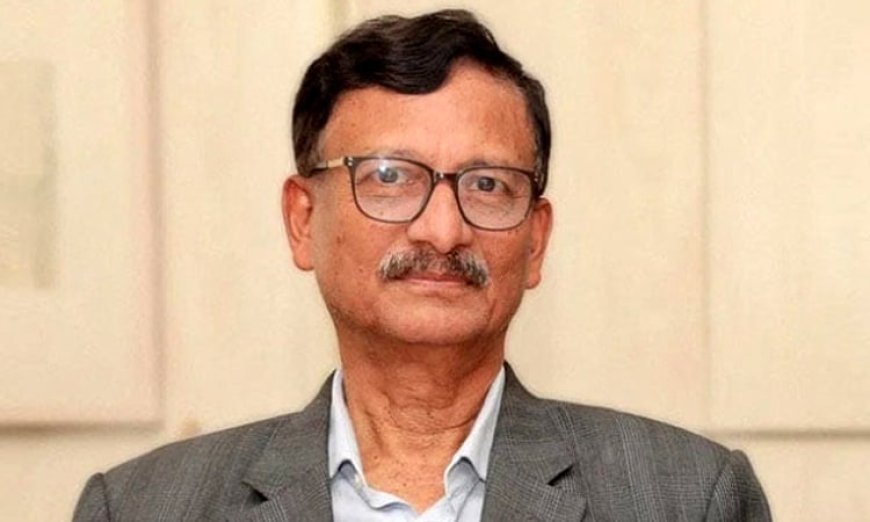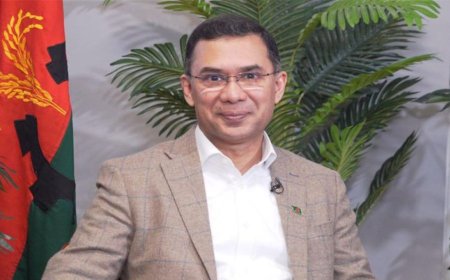Adviser: Dhaka has followed a Bangladesh-focused foreign policy over the past year
Adviser: Dhaka has followed a Bangladesh-focused foreign policy over the past year.

Bangladesh Pursued Balanced, Interest-Driven Foreign Policy Over Past Year: Foreign Affairs Adviser
Bangladesh has followed a balanced and pragmatic foreign policy over the past year, placing national interests and reciprocity at the core of its diplomatic engagements, Foreign Affairs Adviser Md Touhid Hossain said in an exclusive interview with BSS.
“Overall, we have tried to foster balanced relations with all countries, always keeping Bangladesh’s interest front and center. The success of these efforts will ultimately be judged by the people and civil society,” Hossain stated.
He described this “balanced diplomacy” as a cornerstone of the interim government’s foreign policy, which continues to shape Dhaka’s international posture.
According to Hossain, the administration adopted a Bangladesh-centric approach rooted in enlightened self-interest. “If we give something to India, we expect to receive what we need in return—either in equal measure or more,” he said. “This principle applies not just to India but to all nations.”
Prof Yunus as a Diplomatic Asset
Hossain highlighted Chief Adviser Professor Muhammad Yunus’s global reputation as a significant advantage for Bangladesh’s diplomacy. He noted that Yunus’s international stature had helped unlock opportunities that conventional diplomacy might not have achieved.
Citing a specific instance, Hossain said, “A single phone call by Dr Yunus led to the release of several Bangladeshis from prisons in the UAE. That kind of influence is a valuable asset, and we are making use of it.”
Yunus’s legacy as a Nobel laureate and pioneer of social business continues to resonate globally, he added, contributing to Bangladesh’s "soft power" on the international stage. “The respect he commands extends across governments, civil society, business leaders, and multilateral platforms,” said Hossain.
Relations with India
On ties with India, Hossain acknowledged historical closeness under the previous Awami League regime but said the current interim government also seeks to maintain strong working relations with New Delhi—albeit with a greater emphasis on balance, reciprocity, and mutual respect.
“We’re striving for a relationship grounded in cooperation and balance. Despite ongoing issues like trade barriers and land port congestion, trade continues,” he said.
Hossain also pointed out a decline in cross-border shopping and medical tourism to India. “This isn’t a setback. Many Bangladeshis now prefer alternatives like Thailand and China for specialized medical care. Meanwhile, local hospitals are seeing higher patient traffic—this is a good sign for our healthcare sector,” he noted.
Firm Stand on Border Killings and Pushbacks
The adviser said Bangladesh had taken a firmer stance on border killings by India’s Border Security Force (BSF), issuing stronger protest notes than in previous years.
“We’ve repeatedly told India that such killings are unacceptable. Nowhere else are people shot dead at borders with lethal weapons,” he said.
He also raised concerns over irregular “push-ins” of people across the border—some of whom are reportedly Indian Bengali-speaking citizens. Even the Chief Minister of West Bengal has expressed concerns, Hossain noted.
He reiterated that Bangladesh has a mechanism in place to repatriate people and has been adhering to it. “These irregular pushbacks are inappropriate and must stop. We have protested this as well,” he said.
Normalizing Ties with Pakistan
Hossain said Bangladesh has made efforts to normalize diplomatic relations with Pakistan over the past year through increased communication, trade cooperation, and visa facilitation.
Responding to speculation about Dhaka’s alleged tilt toward Islamabad, he said: “We are not tilting toward Pakistan. We’re simply working to establish normal diplomatic ties that protect our interests.”
He noted that relations with Pakistan had been “deliberately sidelined” by the previous government, which he deemed unnecessary.
Sustaining China Ties Without Imbalance
On China, Hossain emphasized that bilateral relations have remained consistent across successive governments since 1975.
“Our ties with China are longstanding and mutually beneficial. Every government has maintained it, and it has never deteriorated,” he said.
Rejecting concerns about Dhaka being too close to Beijing, Hossain insisted the relationship is interest-based, not at the cost of ties with others. “We are maintaining an even-handed approach.”
Relations with the United States
Touching on the United States, Hossain acknowledged growing geopolitical polarization but said Bangladesh remains committed to a non-aligned, balanced foreign policy.
“We’re not leaning toward China or any other bloc—we are protecting our interests,” he said. He noted that relations with Washington remain strong even after the recent change in US leadership, with Donald Trump assuming the presidency.
Bangladesh and the US are also in talks over trade and tariff issues, and Hossain expressed optimism about positive outcomes.
He noted that even the US maintains strategic ties with Pakistan despite its closeness to India—proof that pragmatic diplomacy often defies binary alignments. “That’s the kind of nuanced approach we’re taking as well,” he said.
Rohingya Repatriation: A Distant Hope
Hossain admitted that prospects for meaningful Rohingya repatriation remain limited despite Bangladesh’s continued humanitarian support for over a million displaced Rohingyas.
He cited Myanmar’s recent agreement at the BIMSTEC summit to verify a group of its nationals as a small step forward. However, “without peace in Rakhine, repatriation isn’t feasible,” he added, reiterating Bangladesh’s commitment to voluntary, safe, and dignified returns in line with international norms.
Expanding Diplomatic Footprint
Bangladesh is also expanding its diplomatic reach, with plans to open a High Commission in New Zealand and a consulate in Johor Bahru, Malaysia, within the next three months.
The government has also approved six additional missions, with immediate priority given to a consulate in Guangzhou, China, and a full embassy in Ireland.
“We’ll try to secure quick approval for these two. The others can be rolled out over the next year, subject to budget,” Hossain said.
Reforms for Expatriate Welfare
Improving services for Bangladeshi expatriate workers—especially in the Middle East and Malaysia—is a key priority, Hossain noted.
He highlighted improvements such as home delivery of e-passports in Oman via Oman Post and better waiting facilities in consulates like Jeddah.
To reduce migration costs and curb exploitation, the foreign ministry has proposed deploying additional welfare and passport officers in high-traffic missions.
Internal Reforms in Foreign Ministry
Hossain stressed that no contractual appointments have been made in the foreign ministry over the past year, as part of rationalization efforts.
He pointed out the challenge of running over 70 missions with only 400 cadre officers—one-third of whom are based at headquarters.
“We’re prioritizing posts in the Middle East where most of our remittance earners are. If needed, we’ll leave some positions in Europe vacant,” he said.
Final Message
Hossain concluded by reaffirming the interim government’s commitment to building balanced, pragmatic, and respectful relationships with all countries—anchored in Bangladesh’s long-term national interest.
What's Your Reaction?





















































































